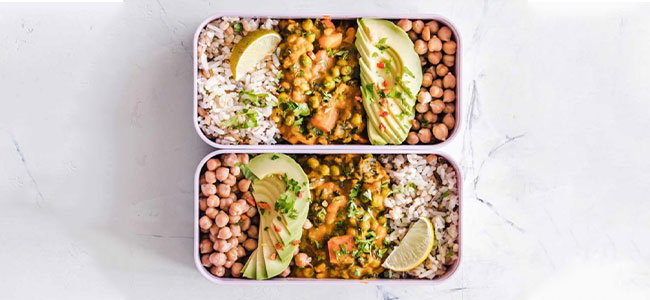Meal prepping has taken the fitness community by storm. You’ve probably seen the Instagrams of beautifully portioned chicken, broccoli, and brown rice in perfect Pyrex containers. We at Cōpare are here to discuss meal prepping, and how a little bit of meal planning may fit better into your busy lifestyle without sacrificing nutrition.
So what exactly is meal prepping? Preppers take a couple of hours (usually a Sunday night) to prepare their food for the week. This can mean batch cooking a big stir-fry for lunches, chopping veggies and peeling fruits for snacks, boiling quinoa, packing meals- you name it. Putting effort in at the beginning of the week can be extremely helpful in reducing your time spent cooking on busier workdays and in saving money from bringing lunch instead of buying.
Although there are undeniable advantages of meal prepping, prepping every meal might not work for everyone. People who need a lot of variety in their diet or who have erratic schedules may be left with a fridge full of spoiling leftovers by the end of the week. If meal prepping doesn’t appeal to you, Cōpare can help you with the art of meal planning.
Even if you don’t have time or cooking ability, you can still put some thought into the big events of the week and create some balance in your diet. Here are Emp180’s tips on being a successful meal planner.




